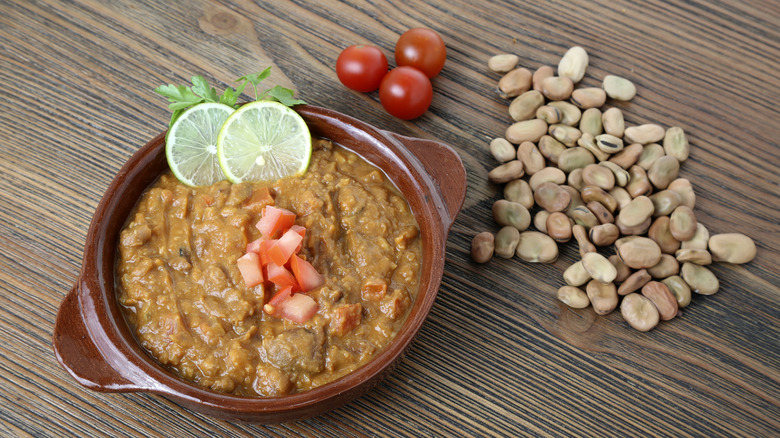Cook Dried Beans With Citrus Peels For A Complexity Of Flavors
Dried beans are nothing new, but they will never get old either. Versatile, convenient, and flavorful without being too overwhelming, they're the perfect ingredient for jazzing up almost any homemade dish. Normally, they're cooked with salt as preparation, but for those who want a bit more depth and complexity, look no further than citrus peels.
Whether we're talking oranges, lemons, limes, or grapefruits, citrus peels are a true aromatic powerhouse. Simmered alongside dried beans, they release essential oils that infuse everything with a vibrant zest, cutting right through the beans' typical earthy, nutty sweetness. This touch of brightness is subtle yet captivating, creating a contrasting intricacy that makes the beans more enticing without altering their original qualities.
This new-found complexity opens up a world of pairing possibilities, no matter what the beans are used for. Served on their own as a simple side dish or blended into a dip, they're spectacular either way. When added to something fresh and light like salads and grain bowls, they bring an exciting twist that brightens things up in a flash. In more hearty, savory dishes like soups and stews, they enrich the already diverse flavor profile with a vivid, sparkling zest. The case is also true for other dishes where beans are often essential toppings, such as tacos, burritos, or nachos.
What to know when you're cooking dried beans with citrus peels
It's best to keep the citrus peels in strip form. They gradually release the oils as the beans cook, creating a dispersed yet pronounced flavor infusion. Grated ones, on the other hand, might not hold up quite as well when slow-cooked. Bear in mind, however, that citrus oils can be quite overwhelming in abundance, so you'll only need a few peels. This also means you should remove them before serving the beans to prevent any undesirable bitterness from seeping through.
The specific pairing of citrus and beans, of course, is as endless as you'd expect. Lemon is a foolproof option since it's likely to work well with just about any bean variety. For something a bit brighter and sweeter, orange is a top-notch choice. Lime is more acidic and sour, which works like a charm with kidney beans, black beans, and red beans (as evident by countless Mexican dishes out there). Additionally, you can branch out and experiment with many other citrus varieties like grapefruit, pomelo, tangerine, or blood orange.
Of course, the citrus peels don't always have to come in when you're cooking the beans. They can also be added later if you plan on sauteeing them as the perfect company for typical aromatics such as garlic and dried herbs. You can even use fresh herbs such as oregano, sage, thyme, bay leaves, or parsley to layer in more fragrant nuances.

